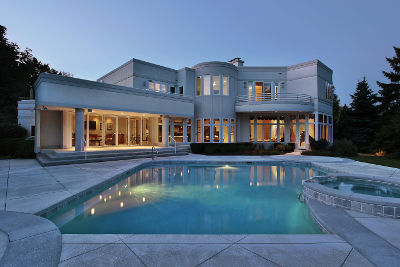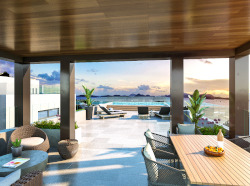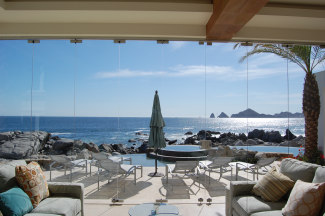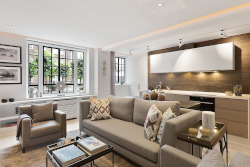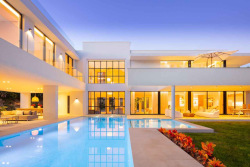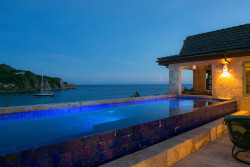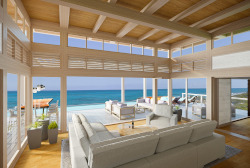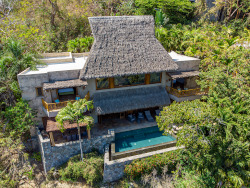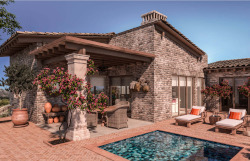Private Residence Clubs and Luxury Fractional Property
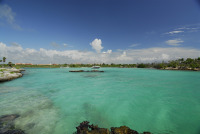
Owners of luxury fractional property buy a share of a single residence, that provides them with a couple of weeks to thirteen weeks of usage a year. The ownership period varies by development and can be expressed as a fraction (eg 1/10, 1/8, or ¼) or as a number of weeks (eg 5, 6 or 12 weeks).
Private Residence Clubs are the upper tier of the luxury fractional market, providing all the services of a five star hotel together with the ownership.
There are hundreds of fractional and Private Residence Club developments located in city, beach, mountain and resort destinations. Use our home directory to search through these locations.
They are sometimes compared to timeshares, although there are several key differences. For instance luxury fractionals are in better locations, are more luxurious and typically larger, providing 2, 3 or 4+ bedrooms. They also offer true, deeded ownership whereas timeshares usually just offer a "right to use."
This article covers the reasons people buy fractionals and PRCs, and if you're looking to buy read the list of questions to ask before buying your fractional. For easy reference there is a glossary of terms.
The latest news and research on luxury fractionals and Private Residence Clubs is available below.
- Details
- Written by Susan Kime
The luxury co-ownership sector continues to evolve with new and modified models. The basic structure of fractional home ownership remains consistent, and the differences come in the characteristics of each program.
One person who has recently set several changes in motion has been Adam Capes, now the CEO of a new co-ownership group called GoForth.
- Details
- Written by Susan Kime
St. John is one of those beautiful, unspoiled Virgin Islands that many travelers have sometimes ignored. It is the smallest of the three main U.S. Virgin Islands in the Caribbean. The Virgin Islands National Park, deeded to the island in 1956 by Laurance Rockefeller, occupies more than half the island. Its forests are home to resident and migratory birds, including cuckoos, warblers, and hummingbirds. The mangroves at Hurricane Hole in the east, support coral and anemone. Dolphins inhabit the island’s waters, which also host hawksbill and green turtles. And at Cruz Bay, one can swim in the richly blue waters and encounter a variety of these sea turtles.
- Details
- Written by Nick Copley
The annual survey of private residence clubs and fractional real estate interests from Ragatz Associates shows total sales of about $624m in 2022. This amount includes new closed sales, presales, and in-house resales at fractional resorts and developments and is the highest sales level in the last 13 years. .
- Details
- Written by Susan Kime
We recently interviewed the founders of Fractal, a fractional ownership real estate platform that has just raised $30m. This new company, based in London, makes it easy for consumers from the Middle Eastern, North African and other high-growth markets to purchase homes in major European cities.
- Details
- Written by Fiona Young-Brown
Last year, we introduced readers to Pacaso, a newcomer to the fractional home ownership market. The company offers shared fractional ownership of very nice second homes. It is an alternative to residence clubs or destination clubs and hopes to make owning a second home more accessible to people. SherpaReport takes a look at recent news and developments at this well funded management company.
- Details
- Written by Susan Kime
Fractional ownership and co-ownership of luxury vacation homes has been evolving over the last few decades. This article recaps the evolution and history of this space and provides an overview of some of the newer players and some of the older more established entities.
- Details
- Written by Nick Copley
An experienced development team is building a solar-powered, private-island community - Ki’ama Bahamas - just minutes by water taxi from George Town, Exuma. This will be the world's first equity club to offer ownership in sustainable, luxurious oceanfront homes and carbon neutral solar yachts.
- Details
- Written by Nick Copley
The annual survey of private residence clubs and fractional real estate interests from Ragatz Associates shows total sales of about $255m in 2021, this was subsequently revised up to $495m. This amount includes new closed sales, presales, and in-house resales at fractional resorts and developments.
- Details
- Written by Susan Kime
As many have known and experienced, the idea of property sharing has been around for a while – timeshare started in the early 1960s in France and Switzerland; it came to the United States, and evolved into the fractional idea – with the Deer Valley Club in Park City, Utah in the 1980’s. From there, the model became the basis for the higher end private residence club, then the destination club, both equity, non-equity, and hybrid. But, due to many issues - some fiscal, some philosophical - some have passed into Real Estate history.
Yet one idea has maintained itself over some years, and that is the idea of fractional or co-ownership. There are a few companies that use this sharing model, and those that use this exemplar, from residences to private jets to yachts, are alive and well.
One of the newest co-ownership residence models is Kocomo, founded in Mexico City in 2021. It has already raised $56 million in financing to advance their unique co-ownership model.
- Details
- Written by Susan Kime
Once again, from the darkness of the pandemic, a new real estate idea has emerged: the first wellness residence club. To be sure, there have been other residence clubs, and branded residences with wellness components, but this is the first co-ownership residence club whose past history and immediate present deal with the promulgation of healing and wellness.

